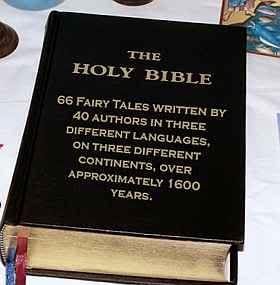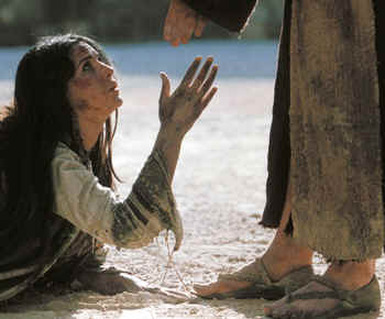Very often in our lives, it seems like the world is falling down around our ears. Everywhere we look, things are being torn down; no matter where we are in life, it seems as though it is nothing more than complete upheaval. For those in positions of power and wealth, times like this can be extremely concerning; for those who have far less, it can be downright terrifying.
The thing to keep in mind is that God is always in control. It is hard to focus on this in moments like these, but it is in these moments when it is vital to turn to He who directs our steps and lights our paths.
Here in the United States, there is a partial government shutdown taking place. I'll not go into the politics of it at the moment, because those views are better left to my personal blog, for one; and for another, politics can be a grave distraction from the things of God for many. Suffice to say, our political leaders have dropped the ball once again, but in doing so, have granted us all a fantastic opportunity to seek God in our daily lives. We must seek Him not only for guidance and direction in our spiritual walk, but now we have a "real" reason to seek Him as our provider.
I use quotations because many of us know that He is always our provider. Many of us know Him to be the source of all we have. Yet in this current time, many more are having to face the reality that God is not just the Provider in hard times, but He is the Provider at all times.
Our foundations have been shaken, my friends; shaken by political upheaval; shaken by personal tragedy and hardship; and shaken by a sudden lack of those things which we consider to be vital and important in our lives- Indeed, things which we consider to be necessary. Some of us have lost our methods of transportation; some of us are facing uncertainty in the area of benefits; some are seeing the warning signs of layoffs; some seem to be trapped in locations far from home with no way of getting back; and still others have found a loss of will to continue on.
Yes, these are all times of hardship, and can indeed be times of chaos - If we allow them to be.
The answer to the hardships and trials we face is a mere prayer away; nay, even a simple whisper. Our loving Creator will provide all our needs, but there are times when we must ask. The days are coming, and coming soon, when we as followers of Christ must rely upon Him solely for the provision that we require, and now is as good a time as any previous to make that change.
Allow me to give an illustration from my own life- I was uprooted from my home state of New Hampshire and brought to New Mexico for no other reason, it seemed, than to languish. I had a job lined up out here, but when I arrived, I discovered that they had given it to someone else. I found myself staying with a friend, my benefactor to whom I will forever be grateful, and looking unsuccessfully for employment. No matter where I went; no matter how many applications I filled out; no matter how many resumes I dropped off, I could find no work anywhere.
That is when I realized that God had brought me here for the sole purpose of learning to rely upon Him, and at that point, I'd been attempting to make my own way- All the time, complaining to Him for not opening doors. I required a time of sincere repentance, and refocused my vision so that my eyes were upon Him day and night.
Shortly after these events, I found work with a gentleman from my former church in his auto detailing business. Yet again, I find myself forever grateful to him not only for the work, but for opening his home to me when my other living situation fell through. After about a year, he received one of the desires of his heart, and was accepted to study at Oxford.
No matter what events transpired, however, so long as I kept my eyes upon Christ and relied upon God for the provision of all my needs, He saw to everything. Employment when needed, housing when required, and the provision of money, food and transportation at all times. Never have I gone without my needs since I returned control of my life to Him.
 I share this story with you all, not to show how righteous or amazing I am (because such a statement would be a far cry from the truth!), but to encourage you, our readers, to look to God for all things. He will always provide- I have learned this truth in my own life, and will continue to learn this lesson in greater and bigger things.
I share this story with you all, not to show how righteous or amazing I am (because such a statement would be a far cry from the truth!), but to encourage you, our readers, to look to God for all things. He will always provide- I have learned this truth in my own life, and will continue to learn this lesson in greater and bigger things. My prayer for each of you is that God shows Himself to be as amazing, if not more so, in your lives as He has in mine. Indeed, I pray that each of you see greater blessings in your lives than I have seen, so that those around you may see and believe.
May God bless and keep you all in His mighty hand, safe from the intentions of the enemy, and provide all your needs- For though your foundations are shaking, it may very well be He who is reminding you that He must be first in all things in your lives.
























